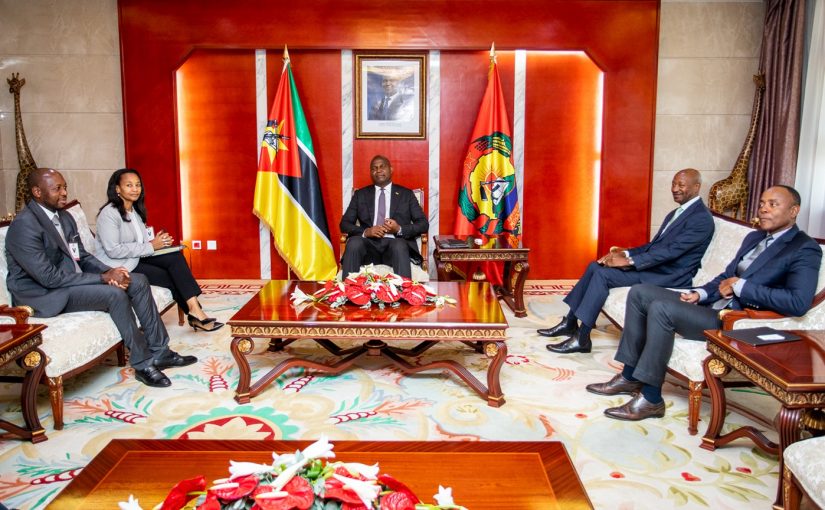Here are the six priority projects to be financed by Mozambique's Sovereign Fund
Mozambique: Sasol expects $1B gas, electricity project up, running in September

Photo: Presidency
South African oil company Sasol expects to conclude the US$1 billion (€907.6 million) Production Sharing Agreement (PSA) project for gas and electricity in Mozambique in September, the company’s president Simon Baloy announced.
“This is a US$1 billion project that is coming to an end in September. It has been a wonderful project,” said Sasol’s executive director president and chief executive officer, Simon Baloy after meeting President Daniel Chapo in Maputo on Wednesday to discuss the project in Inhassoro district, Inhambane province, southern Mozambique.
“This project will not only allow gas to be used for energy production, but we will also send this gas to Mozambique’s second largest power plant, the CTT [Central Térmica de Temane], which is also close to completion and will also produce LPG (cooking gas) that will […] reduce the amount of gas imported by Mozambique,” added Baloy.
The PSA project calls for the production of 53 million megajoules of natural gas per year, which will materialize the implementation of the Central Térmica de Temane, and the production of 4,000 barrels of light oil per day, respectively, according to data from the Mozambican government.
The CTT will have the capacity to produce 450 megawatts of electricity and the processing unit will produce 30,000 tons of LPG per year.
“We have been in this country for over 20 years and will continue to be in the next 20 years and beyond. This is therefore an exciting chapter in the history of Sasol in Mozambique,” said the Sasol official, who is leading the development of this project.
The Mozambican government, which previously estimated that production at the unit would start in March, expects that the country will reduce its imports of bottled gas by 70% with the start of operations at the Inhassoro unit.
After five months of social unrest following the general elections on 9 October, the Sasol chairman highlighted the steps that the Mozambican head of state has taken towards national pacification.
“We have seen that there have been some challenges. We are excited about the stability that President Chapo is bringing to the country, together with all the partners, to create a business-friendly environment. And we are excited to continue contributing to the development of Sasol and Mozambique,” Baloy said.
Hours before this meeting, the Mozambican parliament debated the law on the political agreement to pacify the country, which envisages reviewing the Constitution of the Republic and the powers of the president, an initiative of the head of state and leader of Frelimo, Daniel Chapo, which was approved unanimously and by acclamation on the day it was submitted to the Assembly of the Republic.
The legal provision is based on the agreement between the president and all political parties, signed on 5 March, to overcome the post-election unrest marked by violence in the streets, and submitted to the Assembly of the Republic for urgent consideration.
Within the scope of the constitutional reform envisaged in the agreement, three objectives are assumed in the law, firstly the “reform of the state”, with measures at the level of the “political system, the powers of the president (…), de-politicization of State institutions, decentralization and political, economic and financial de-concentration”.
The law also includes the “reform of the justice system”, namely “the mechanism for appointing the heads of justice bodies and their respective financial and administrative independence”, and the “reform of the electoral system”, in this case with the “definition of a new model, composition of electoral administration bodies, electoral legislation, electoral justice bodies, among other aspects that contribute to the integrity of the entire electoral process”.












Leave a Reply
Be the First to Comment!
You must be logged in to post a comment.
You must be logged in to post a comment.